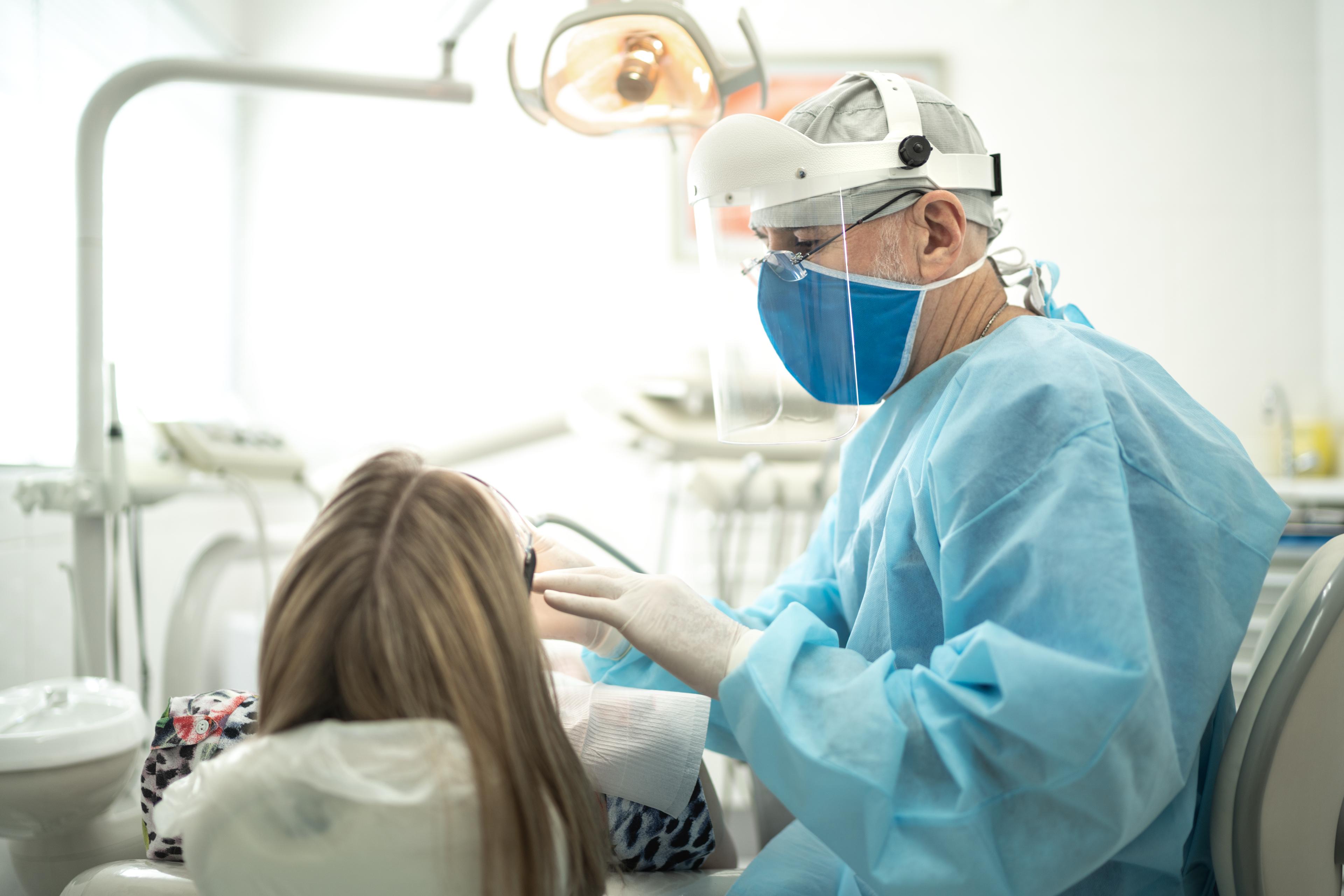
Research shows a link between how people take care of their mouths and their overall health.
“Most people just think they’re getting their teeth cleaned, but it’s truly so much more. The mouth can be such an indicator of overall health,” said Dr. Lisa Knowles, associate dental consultant and dental director at Blue Cross Blue Shield of Michigan.
Dr. Knowles joined “A Healthier Michigan Podcast” to talk with host Chuck Gaidica about what routine dental checkups can uncover about our overall health. During the episode, they explored:
- The link between dental hygiene and overall health.
- What can be found during a dental exam.
- Advancements in dentistry that are improving how exams are performed.
- What we can do to maintain optimal oral and general health.
By checking someone’s mouth, a dentist can be the first to spot a serious health issue.
“We have the knowledge, we have the background, we have the training,” says Dr. Knowles, who graduated from the University of Michigan School of Dentistry.
How dental health can hint to bigger issues
A big indicator of potential health issues is periodontal disease, which occurs when bacteria in the mouth cause inflammation and bone loss around the teeth.
Bone loss around the teeth can be linked with other systemic diseases such as heart disease, specifically atherosclerosis cardiovascular disease, which is an inflammatory disease of the arteries in the heart. It is associated with atheroma, a fatty material that can form in arteries, leading to heart attacks and strokes.
“Lots of research is going on right now to find out exactly how periodontal disease and heart disease are linked,” Dr. Knowles said. “So not only should you take care of your own teeth, you then should check in with a dentist. You can’t measure the bone levels around your teeth. That’s what we do with those little measuring sticks. Not everybody loves it, but it helps us see what’s going on. A dentist also can see If there’s any bleeding in there, which is also an indication that things aren’t healthy.”
Regular visits to the dentist can establish a baseline that can be tracked throughout the years.
“A lot of times, a small little issue can be corrected or fixed pretty easily and pretty inexpensively,” Dr. Knowles said. “But if just left alone, it potentially could cause you to lose a whole tooth or lead to infection. You start losing bone, infection can go to the brain, the heart, all that. So it’s dangerous to just leave it be.”
Cancer and sleep apnea screenings
As part of an exam, dentists do an oral cancer screening. The tongue can be the spot where squamous cell carcinoma begins. While dentists don’t diagnose the cancer, they can refer patients to a specialist for additional screening such as a biopsy.
Dentists also are screening for sleep apnea.
“We’re not diagnosing sleep apnea, but we are screening more because these patients are right here in front of us,” Dr. Knowles said. “We can check out those big tonsils in kids if parents tell us their kids snore and maybe struggling in school because they are sleepy.”
A screening tool used in these situations is STOP-Bang, short for Snoring, Tiredness, Observed apnea, high blood Pressure, Body mass index, Age, Neck circumference and Gender.
“Truly, I feel like an investigative person, a lot of times asking lots of questions, putting all the puzzles together. It’s like we’re solving a mystery,” Dr. Knowles said. “Fortunately, we get a lot of hints in the mouth.
“I’m encouraging dentists to think broadly and connect all the information we have at our fingertips, from the medical histories, to what we see in the mouth, to what we’ve learned and what we’re continuing to learn education-wise.”
Routine maintenance
She encourages people to see a dentist a minimum of once a year, but says twice a year is best.
“Your body needs routine maintenance,” Dr. Knowles said. “If you cannot afford to have that routine maintenance, there are federally funded programs to help you get that treatment. The Healthy Kids Dental program in Michigan is covered in all counties, so all kids should be able to have care. By making regular visits to the dentist, you’re teaching your kids. You’re also taking that time for yourself to not only get your teeth cleaned and checked, but you’re also preventing bigger problems like periodontal disease that could lead to heart disease, potential Alzheimer’s. We’re just finding out more and more systemic relationships, too.”
A Healthier Michigan Podcast is brought to you by Blue Cross Blue Shield of Michigan. To hear more episodes on your smartphone or tablet, subscribe on Apple Podcast or Spotify or your favorite podcast app.
Photo credit: Getty Images






